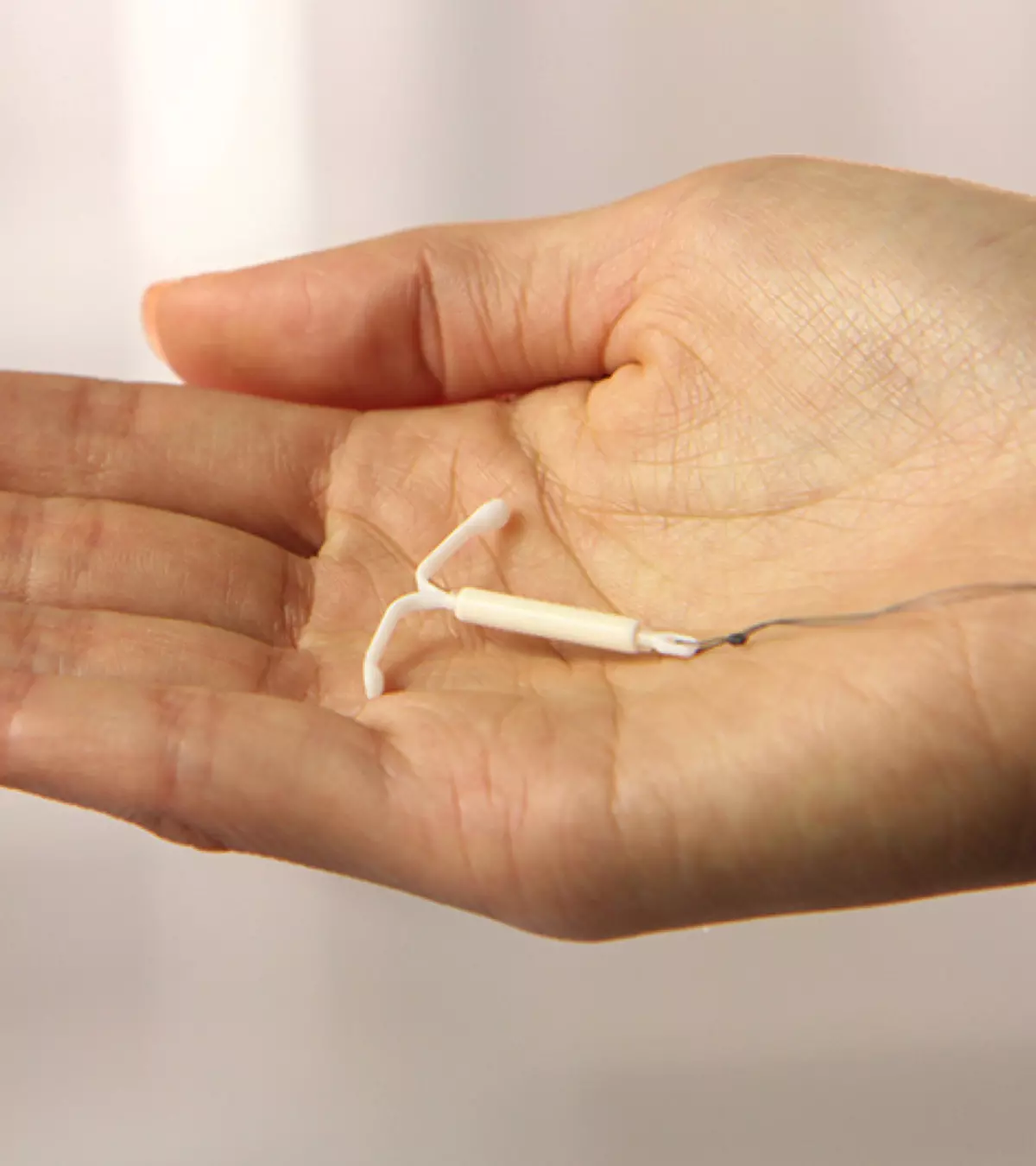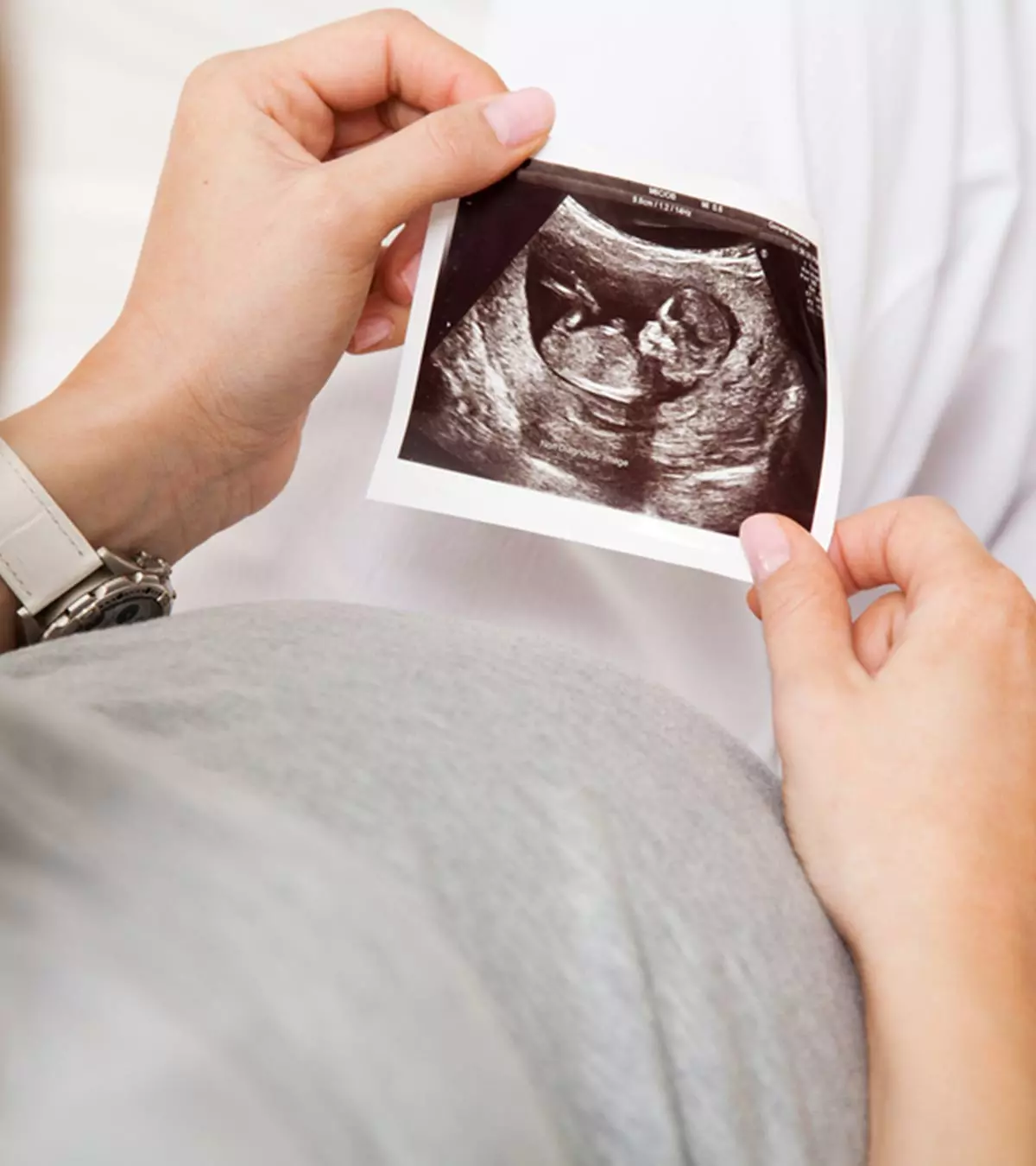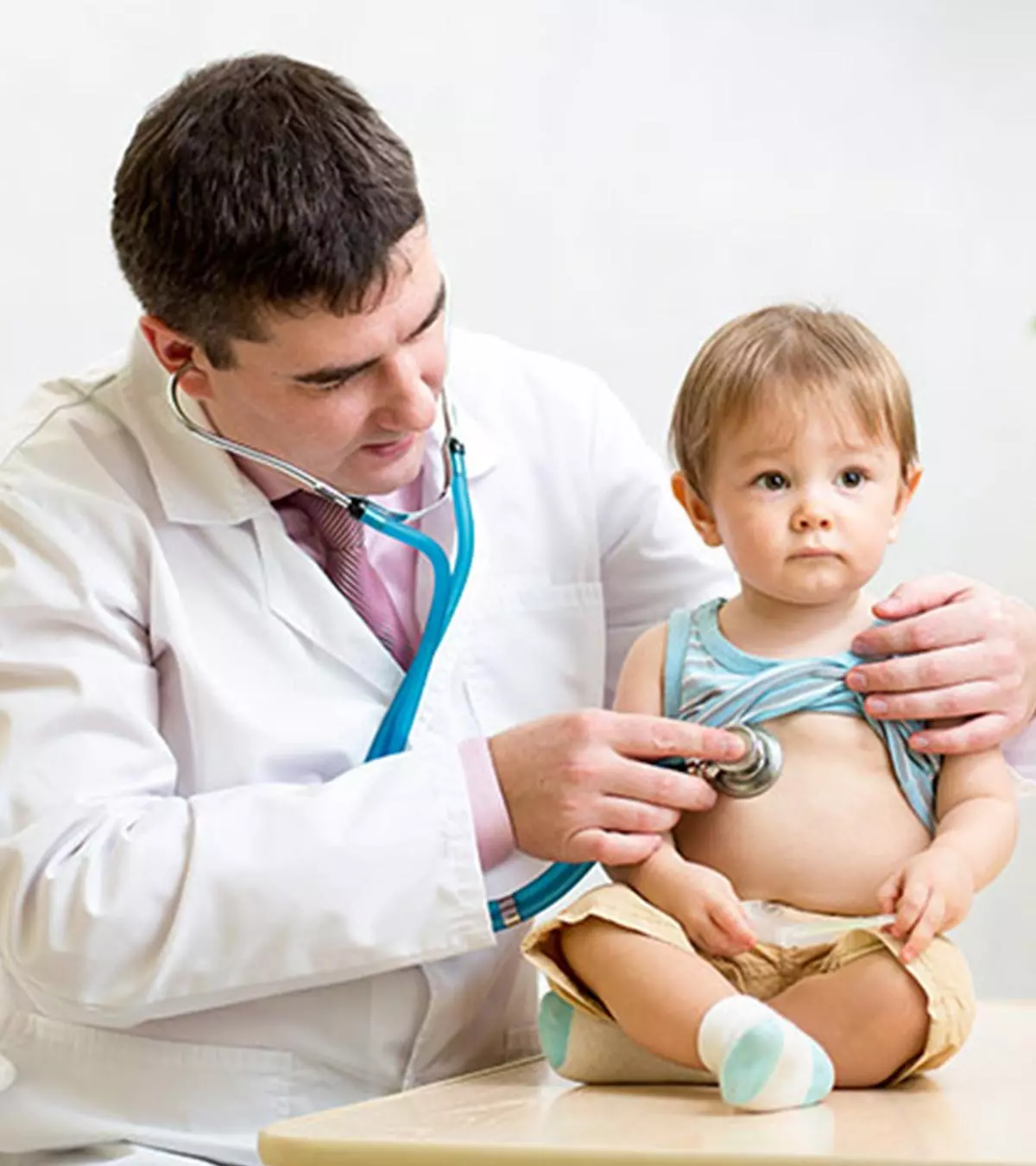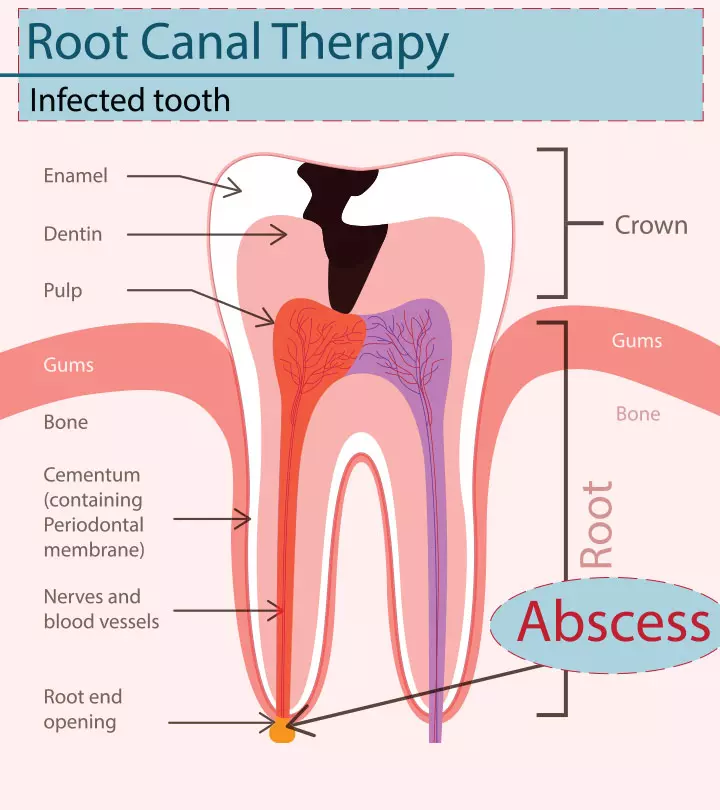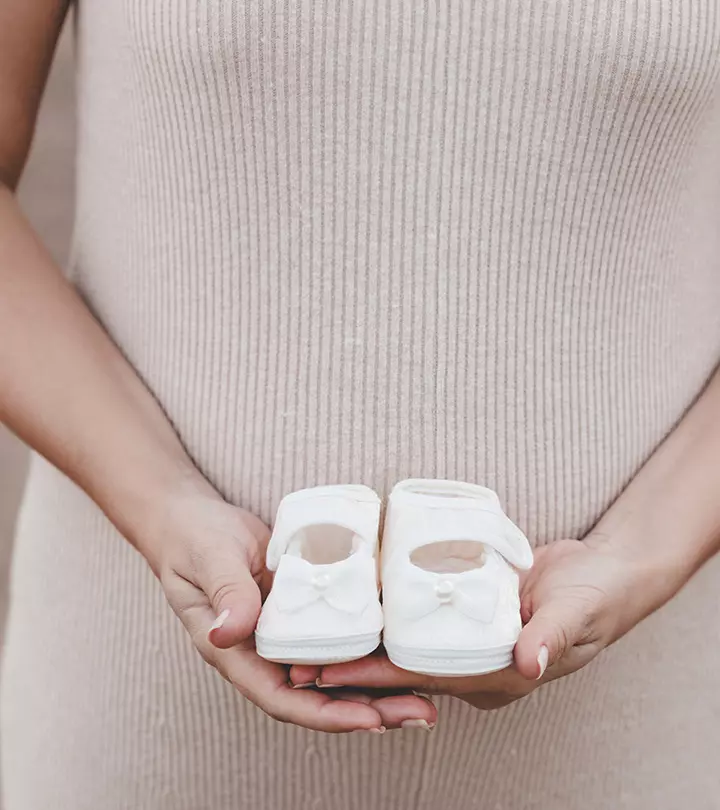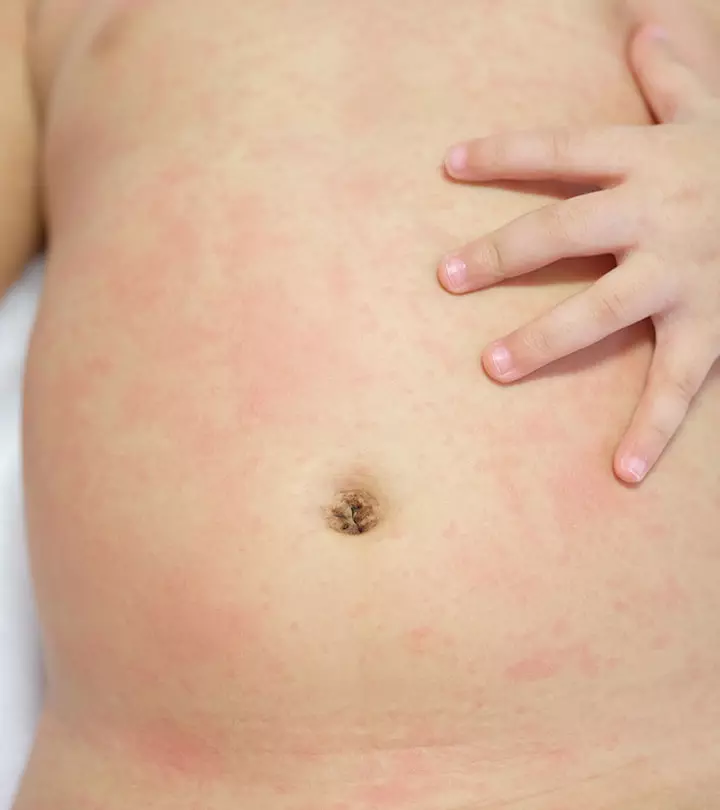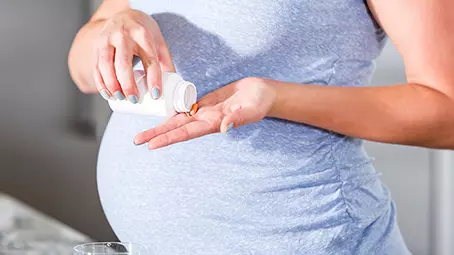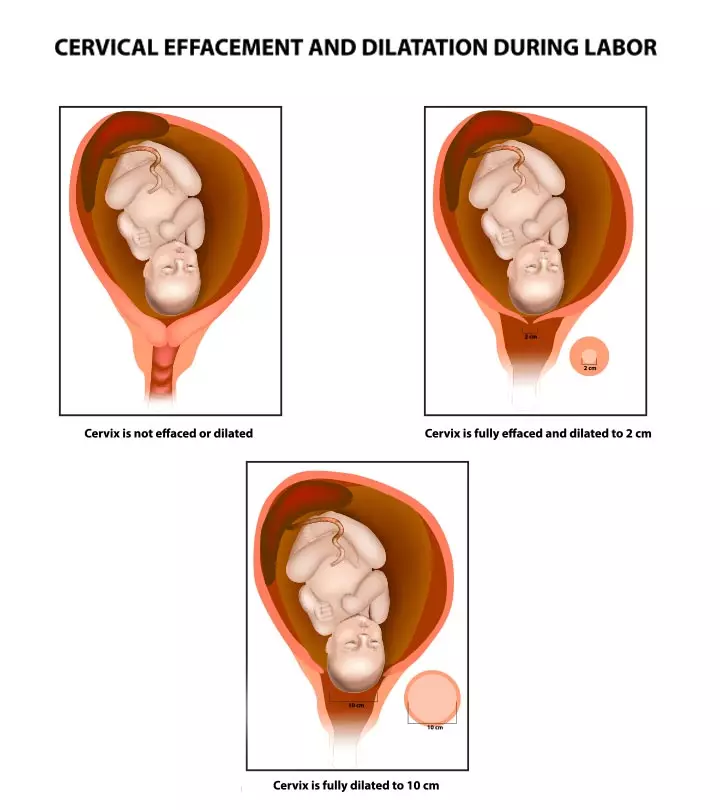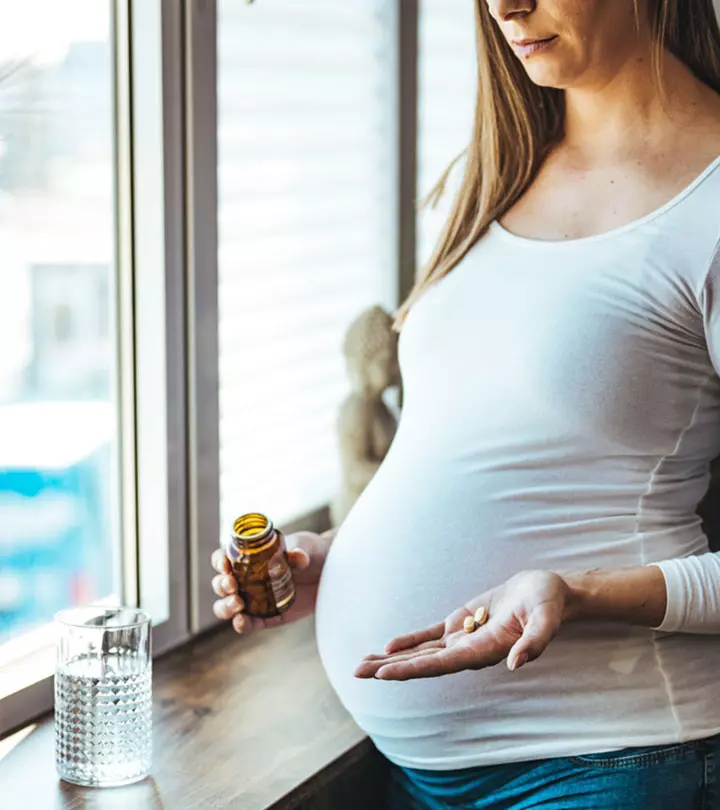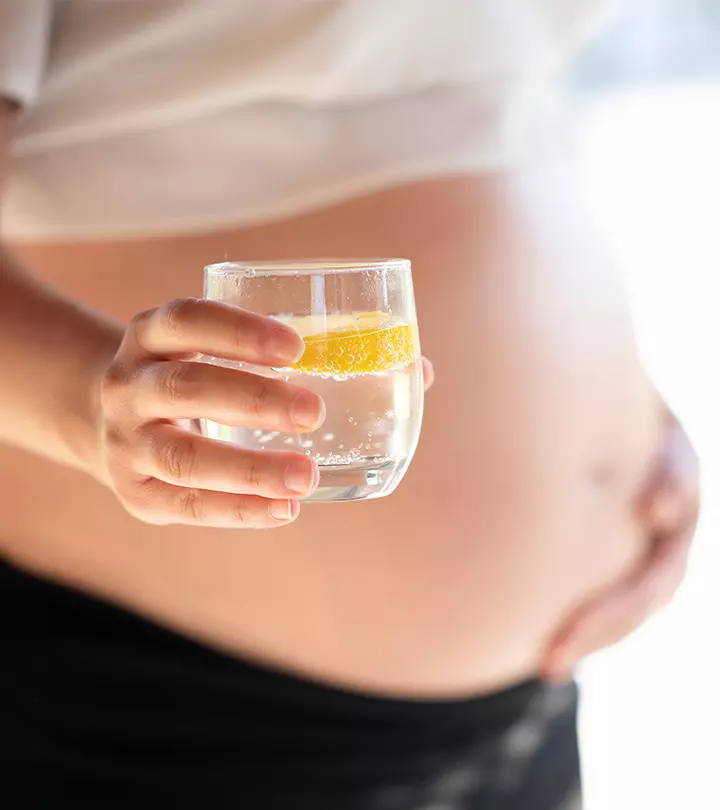
Image: iStock
Soda is a non-alcoholic beverage that many people, including pregnant women, enjoy drinking. The common belief is that sipping soda helps feel refreshed instantaneously and provides energy. Some pregnant women may turn to soda to fight pregnancy fatigue, but regular consumption could be linked with negative health outcomes. So can you drink soda while pregnant, or must you avoid it completely?

Read on as we tell you about the safety and side effects of drinking soda during pregnancy.
Key Pointers
- Some pregnant women consume soda to combat fatigue.
- However, soda being a carbonated drink might be unsafe during pregnancy.
- Pregnant women are at risk of side effects from soda, including insomnia, indigestion, nausea, and dizziness.
- Moreover, consuming soda might put you at higher risk of pregnancy-related complications such as diabetes, weight gain, and preterm birth.
Is It Okay To Drink Soda During Pregnancy?
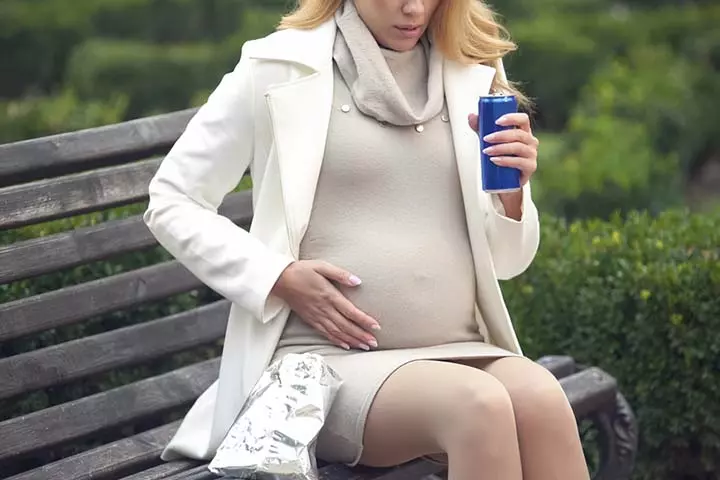
Drinking a glass of soda once in a while during pregnancy is unlikely to harm you or your baby. However, its frequent consumption could be a cause for concern. Soda is a mixture of carbonated water with sweeteners, such as sucrose or high-fructose corn syrup, natural flavors, and caffeine (1). Since most of these ingredients can bring negative health outcomes, limiting soda intake is better.
Recalling her journey throughout pregnancy, a new mother and ardent blogger says, “I don’t think I had weird cravings, but I did crave most of my favorite things. Like Pepsi, before pregnancy, that was my go-to drink, while I was pregnant, that’s all I felt like drinking. I know they say it’s not good to drink soda while pregnant. Believe me, I tried to cut it out just couldn’t help it I wanted my Pepsi. I tried to keep a healthy diet but still would sneak in my Pepsi and hot sauce all the time, which would result in heartburn (i).”
How Might Caffeine In Soda Affect You And Your Baby?

Caffeine and its effects on pregnant women and their babies aren’t quite clear. Some observational studies suggest that excessive caffeine consumption may cause pregnancy loss (miscarriage), low-birth weight, preterm labor, or even stillbirth. However, some other studies don’t concur (2) (3) (4).
Irrespective of the caffeine’s effects, one thing is clear that caffeine clearance during pregnancy slows down significantly. It could make pregnant women more sensitive to caffeine’s side effects, such as those stated below (5).
- Acidity
- Indigestion
- Nausea
- Lightheadedness
- Jitteriness
- Sleeplessness or insomnia
In some cases, caffeine may increase blood pressure and heart rate, increasing the risk of congenital disabilitiesiA structural or functional abnormality present from birth . Also, it can cause frequent urination and increase the risk of UTI (urinary tract infection), raising maternal electrolyte imbalanceiA condition where the body has either excess or not enough minerals and salts in the body and dehydration risk (6). Caffeine can also cross the placenta and reach the fetus. It is not fully known what happens to caffeine when it crosses the placenta and reaches the fetus. However, it may lead to undesired effects, considering that the growing baby does not have the enzymes to metabolize caffeine.
Most healthy pregnant women are advised to limit their caffeine intake to 200mg per day (7). It includes caffeine from soda and all the sources, such as tea, coffee, chocolate, green tea, and certain medications.
How Might Sugar In Soda Affect You And Your Baby?

Healthy weight gain is crucial for your and your baby’s well-being during pregnancy. For this reason, experts suggest pregnant women avoid or limit the intake of sugar-rich foods and drinks, such as soda. According to several studies, higher consumption of sugar-sweetened beverages can (8):
- Suppress a pregnant woman’s appetite for healthy foods.
- Cause energy excess, leading to unwanted maternal weight gain and related health concerns, such as preterm birth.
All women undergo insulin resistance during pregnancy. However, those overweight and obese are at an increased risk of continued insulin resistance, resulting in gestational diabetesiPregnancy-specific condition characterized by high blood sugar levels, which may pose a risk of complications (GDM). GDM can increase the risk of large babies, birthing difficulties, and an increased risk of maternal diabetes after delivery (9). Babies born to mothers consuming too many soft drinks during pregnancy may experience the following effects(10).
- Increased risk of developing diabetes later in mid-childhood
- Adverse effects on cognitive development
Therefore, you should keep the intake of sugary foods and fizzy drinks, such as cola or pop, within limits. It’s critical if you already have GDM or if your obstetrician considers you at a high risk of developing GDM.
 Research finds
Research findsWhat About Carbonated Water And Flavorings?

Carbonated water (without additives and only carbon dioxide) is considered comparable to plain water (11). It may provide hydration as good as plain water and could be considered an alternative when clean potable water is unavailable.
Several types of carbonated water contain flavoring agents such as phosphoric and citric acid. These agents in excess can cause calcium loss from the teeth and bones. It can be a serious issue during pregnancy since surging hormones increase your risk of oral health issues, such as cavities and gingivitis, already. Some carbonated beverages might contain small amounts of benzene, a potential carcinogeniA chemical, organism, or thing that can cause cancer .which can be especially harmful to fetal and maternal health.
Therefore, you may avoid carbonated water during gestation to be on the safe side. If you wish to drink carbonated water, pick those that only contain water and carbon dioxide, with no other additives. Drink them occasionally or not at all.
Is Diet Soda A Better Choice?
Diet soda contains the same ingredients as regular soda, except for sugar. Instead, they contain artificial sweeteners. The US Food and Drug Administration (US FDA) approves six artificial sweeteners as food additives — saccharin, acesulfame, aspartame, neotame, sucralose, and advantame (12). While these non-nutritive sweeteners (NNSs) offer minimal to zero calories, not all of them are safe to consume for moms-to-be.
For instance, saccharin (Sweet ‘N Low) is an artificial sweetener that can cross the placenta and stay in fetal tissues, owing to which its use for pregnant women isn’t advisable, as it can potentially harm fetal development (12). Additionally, several studies on pregnant animals show that “NNS consumption has been associated with altered sweet taste preference later in life, elevated body mass index, increased risk of obesity, microbiome dysbiosis, and abnormal liver function tests (13).”
 Point to consider
Point to considerWhat Can You Drink Instead Of Soda?

The best beverage for hydration is plain water. Experts advise pregnant women to drink 8-12 cups of water every day to maintain prenatal nutrition (14).But sometimes, drinking plain water may get boring and monotonous, and it’s then that you can drink the following instead of soda that also caters to your pregnancy cravings.
- Low-fat milk
- Buttermilk
- Coconut milk
- Coconut water
- Homemade fruit-infused water
Besides these, you can also consume some types of vegetable and fruit juices and tea, such as green tea, in small amounts as said before, because of the caffeine, and ginger tea. However, consult your doctor before trying any herbal tea since some teas might not be appropriate during pregnancy (15).
Frequently Asked Questions
1. How many sodas can I drink when pregnant?
Since one can of soda contains artificial sweeteners and caffeine within the amounts of the recommended dosage for pregnant women, you may have one can of diet soda per day.
2. Does drinking soda when pregnant cause ADHD?
According to a study, daily soda intake while pregnant may be associated with ADHD in the child. However, you should consult your OB/Gyn to confirm its effects to continue enjoying your favorite beverage (16).
3. Are there any health benefits to drinking soda during pregnancy?
Besides making one feel refreshed, soda does not impart any health benefits to pregnant women.
4. Can soda consumption during pregnancy lead to complications during childbirth?
According to a study, consumption of sweetened carbonated beverages could be associated with low birth weight in babies (19). Nevertheless, it is important to note that several other factors, such as maternal glucose tolerance levels, smoking status, and other fetal growth factors, might also influence infant birth weight.
An occasional soda is usually unlikely to harm you or your baby. However, avoid having it frequently or making it part of your maternal diet. The high caffeine and sugar content may cause adverse effects on the fetus over time. Diet sodas are not any better due to their artificial sweeteners. Explore other safe beverages, such as milk or coconut water, and stick to plain water for safe hydration during pregnancy.
Infographic: Fruit-Infused Water To Stay Hydrated During Pregnancy
Fruit-infused water can be an ideal replacement for soda during pregnancy. These refreshing and flavorful drinks will help you keep adequately hydrated while satisfying your palate. Go through the infographic below for some easy recipes.
Some thing wrong with infographic shortcode. please verify shortcode syntax
Personal Experience: Source
MomJunction articles include first-hand experiences to provide you with better insights through real-life narratives. Here are the sources of personal accounts referenced in this article.
i. Life as a new mom during pregnancy.https://lizlivlivn.blogspot.com/2018/11/during-pregnancy.html
References
- Is diet soda better for you than regular soda?.
https://wexnermedical.osu.edu/blog/is-diet-soda-better-for-you-than-regular-soda - Sara Morgan et al.; (2013); Is caffeine consumption safe during pregnancy?.
https://www.ncbi.nlm.nih.gov/pmc/articles/PMC3625078/ - Ekaterina Maslova et al.; (2010); Caffeine consumption during pregnancy and risk of preterm birth: a meta-analysis.
https://www.ncbi.nlm.nih.gov/pmc/articles/PMC2954446/ - Fernanda Pino Vitti et al.; (2018); Association between Caffeine Consumption in Pregnancy and Low Birth Weight and Preterm Birth in the birth Cohort of Ribeirão Preto.
https://pubmed.ncbi.nlm.nih.gov/30536269/ - E. James; (2025); Maternal caffeine consumption and pregnancy outcomes: a narrative review with implications for advice to mothers and mothers-to-be.
https://ebm.bmj.com/content/26/3/114 - Caffeine During Pregnancy.
https://americanpregnancy.org/healthy-pregnancy/pregnancy-health-wellness/caffeine-intake-during-pregnancy/ - Caffeine In Pregnancy.
https://www.marchofdimes.org/find-support/topics/pregnancy - Ryan J. Gamba et al.; (2019); Sugar sweetened beverage consumption during pregnancy is associated with lower diet quality and greater total energy intake.
https://www.ncbi.nlm.nih.gov/pmc/articles/PMC6483237/ - Diabetes During Pregnancy.
https://www.stanfordchildrens.org/en/topic/default?id=diabetes-during-pregnancy-90-P02444 - Juliana F. W. Cohen et al.; (2018); Associations of Prenatal and Child Sugar Intake With Child Cognition.
https://www.ncbi.nlm.nih.gov/pmc/articles/PMC5962431/ - Are carbonated drinks good for you?.
https://wexnermedical.osu.edu/blog/are-carbonated-drinks-good-for-you - How Sweet It Is: All About Sugar Substitutes.
https://www.fda.gov/consumers/consumer-updates/how-sweet-it-all-about-sweeteners - Anna Palatnik et al.; (2025); Consumption of non-nutritive sweeteners during pregnancy.
https://www.ajog.org/article/S0002-9378(20)30385-9/fulltext#%20 - How much water should I drink during pregnancy?.
https://www.acog.org/womens-health/experts-and-stories/ask-acog/how-much-water-should-i-drink-during-pregnancy# - Carbonated Soft Drinks: What You Should Know.
https://www.fda.gov/food/buy-store-serve-safe-food/carbonated-soft-drinks-what-you-should-know - Liv Grimstvedt Kvalvik et al. (2025); Association of sweetened carbonated beverage consumption during pregnancy and ADHD symptoms in the offspring: a study from the Norwegian Mother, Father and Child Cohort Study (MoBa).
https://link.springer.com/article/10.1007/s00394-022-02798-y - M. I. Goran et al.; (2018); Effects of consuming sugars and alternative sweeteners during pregnancy on maternal and child health: evidence for a secondhand sugar effect.
https://www.cambridge.org/core/journals/proceedings-of-the-nutrition-society/article/effects-of-consuming-sugars-and-alternative-sweeteners-during-pregnancy-on-maternal-and-child-health-evidence-for-a-secondhand-sugar-effect/2F31AE3E8099B7989ABB69F4E1EB97F5 - Drinks, Soft Drinks, & Juices During Pregnancy.
https://www.wm.edu/as/programs/healthy_beginnings/files/healthy_beginnings_originals/drinks_softdrinks_juices_during_pregnancy.pdf - Jacob H Grundt et al., (2017); Is consumption of sugar sweetened soft drinks during pregnancy associated with birth weight?
https://www.ncbi.nlm.nih.gov/pmc/articles/PMC5638078/
Community Experiences
Join the conversation and become a part of our nurturing community! Share your stories, experiences, and insights to connect with fellow parents.
Read full bio of Dr. Karla S. Sanchez-Banos
Read full bio of Swati Patwal
Read full bio of Rebecca Malachi
Read full bio of Aneesha Amonz






